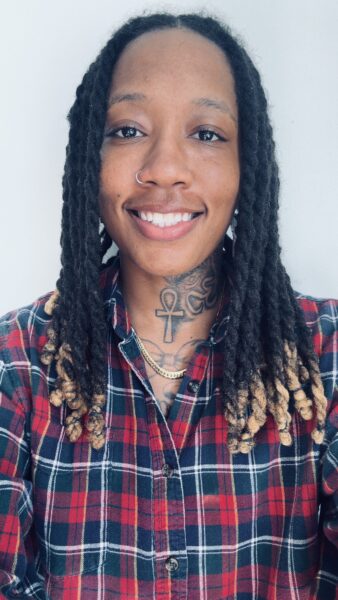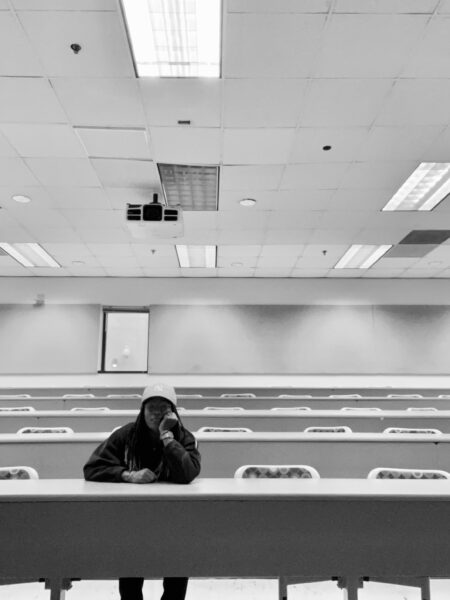

Growing up in North Carolina, I became acutely aware of my own and other’s identities at an early age. To endure the climate in the South, we are socialized to self-surveil as a means of protection. The older I got, the more I realized the same socio-political context I experienced as a kid transgressed each institution in the United States. Audre Lorde stated, “the master’s tools will not dismantle the master’s house”. Within the Ivory Tower, as both a Black non-binary masculine presenting, post-secondary educator and doctoral student, I’ve witnessed the enactment of racist, transphobic, and other oppressive policies and practices resulting in the marginalization of students, educators, and support staff across college campuses. Looking to earlier social movements, we can see that resistance is not only possible—it is essential.
Within the past few years, I’ve observed an increase in anti-LGBTQ+ policies and rhetoric infiltrating academic spaces, frequently in pervasive and profoundly harmful ways. These policies are not abstract– their impacts are real. Academic institutions are utilizing the current administration’s anti-LGBTQ+ rhetoric and policies as justification for regulating and controlling spaces. Namely, the over policing of bathrooms, regulation of conversations about sexuality and gender, and reversal of pronoun usage. Beyond the impacts on curricula, gender expansive educators and students are being marginalized due to exclusionary practices and culture within academic spaces. This marginalization counters the ultimate purpose of public institutions–which in the U.S. promises equitable access for all students.
To preserve oneself, existing within educational institutions requires a level of dualism for those with historically oppressed identities. To some degree, you’re privileged, due to the exposure to liberatory language and texts. However, you are also expected not to challenge cisgender, heterosexual norms. For example, since 2017, after the passage of one of the first anti-trans bathroom policies in North Carolina, college institutions across the United States have implemented both informal and formal transphobic bathroom policies and practices. More recently, following Donald Trump’s signing of an Executive Order that attempts to legally define sex as biological and binary. We’ve witnessed colleges like the University of Cincinnati react by institutionalizing and displaying “biological sex” signage across campus to control bathroom use under the guise that it “protects students”. During my fourth year of graduate school, faculty attempted to affirm the large gender expansive population attending the institution by displaying “gender neutral” signage. Reinforcing the dominant ideology that public safety is somehow at risk when bathrooms are gender neutral, the administration responded by removing the signs. Whether informal or formal, enforcement of binary gender norms in restrooms serves as a constant reminder that our identities, presence, and dignity are under scrutiny.

Equally important is recognizing the importance of gender and sexuality classes being central to promoting understanding. Unfortunately, these classes are the subject of censorship, surveillance, and political interference. As a gender and sexuality scholar and educator, I have seen that my students are naturally concerned with the impact this may have on their educational and lived experiences. Like the attacks on the teaching of Critical Race Theory (CRT), the limits on the exploration of LGBTQ+ issues discourages LGBTQ+ students as they witness representation of their identities dissipate from the curriculum. As they disappear from the literature and discussions, this communicates the notion that LGBTQ+ issues and lives are not valuable and not worthy of academic consideration, furthering the systematic marginalization and challenges.
Beyond my basic responsibilities to educate, it is imperative that I resist hegemonic rhetoric penetrating education systems in both my professional and personal spheres. Namely, one of the ways I do this is by creating spaces for students, especially those most impacted. Additionally, I challenge the norms of respectability politics and cis heteronormativity through my presentation and deconstruction of hierarchies. In practice, I ensure they feel seen and can thrive by utilizing components of the pedagogy of the oppressed. Renowned educator and philosopher, Paulo Freire contends we treat students as more than receptacles. We must move away from this expectation that students should digest information without challenge. Key to my praxis is equipping students with the instruments to challenge the very oppressive institutions impacting them.
Contrary to what some believe, this fight is not new. LGBTQ+ students historically and currently are at the forefront of movements of resistance. Amongst the movements of resistance against systemic anti-LGBTQ+ policies and practices, our community has a long history of resilience. This resiliency can continue to serve as a shield against dark times ahead. To that end, fear hasn’t deterred us in the past and won’t in the future. Instead, it will fuel our efforts as we reimage and create a more affirming world for those who are most marginalized. Black feminist of the Combahee River Collective, Barbara Smith stated, “if you could free the most oppressed people in society, then you would have to free everyone”. Beyond the fight against oppressive forces, students deserve liberatory spaces where they are free to express their identities and flourish, regardless of their gender, sexuality, or other social identities. Amongst the reemergence of anti-trans language and policies on college campuses across the United States, I want students to know that they are not alone in this fight. While I’m one educator, I like to think the socio-political conditions I experienced as a kid in North Carolina have prepared me for this very moment–and that there are many others like me who are also ready to fight for and protect our students.

